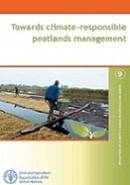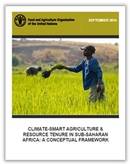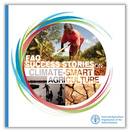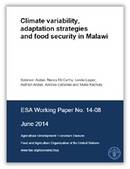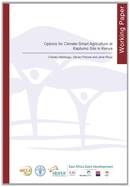Technical reports
Responsible management practices can help to maintain peatland ecosystem services while sustaining and improving local livelihoods. This recent FAO publication gives guidance on responsible peatland management practices, supporting the reduction of GHG emissions from managed peatlands. This overview of current knowledge on peatlands, includes data related to their geographic distribution, ecological characteristics and socio-economic importance. The guide has been written to assist land managers and other decision makers. It documents case studies of responsible management practices: rewetting, paludiculture, degraded pasture restoration and forestry in all climatic regions.
The adoption of CSA practices is limited in many areas in sub-Saharan Africa and a number of barriers to adoption have been identified. Property rights and tenure security can affect the adoption of CSA. This paper discusses the key characteristics of four CSA practices related to sustainable land management. It provides a conceptual framework for evaluating the pathways by which expanding property rights and strengthening tenure security affects the incentives to adopt new technologies and then applies this framework to each of the four CSA practices.
This booklet provides examples of climate-smart systems by showcasing some FAO success stories in various countries. The cases have been selected from the FAO Climate-Smart Agriculture (CSA) Sourcebook launched in 2013 to show the diversity of potential options across different regions and agricultural systems. It covers subjects such as biodiversity and gender.
This paper assesses farmers’ incentives and the conditioning factors that hinder or promote adaptation strategies. it evaluates the impact of these factors on crop productivity by utilizing household level data collected in 2011 from nationally representative sample households in Malawi.
This report identifies and assesses climate-smart agricultural practices through participatory appraisal tools with experts and farmers, as part of the MICCA pilot project in Kaptumo, Kenya. The aim is to highlight and add climate-smart practices within the ongoing development programme which aims to integrate climate change adaptation and mitigation with improving livelihoods and productivity of the dairy farming system.

